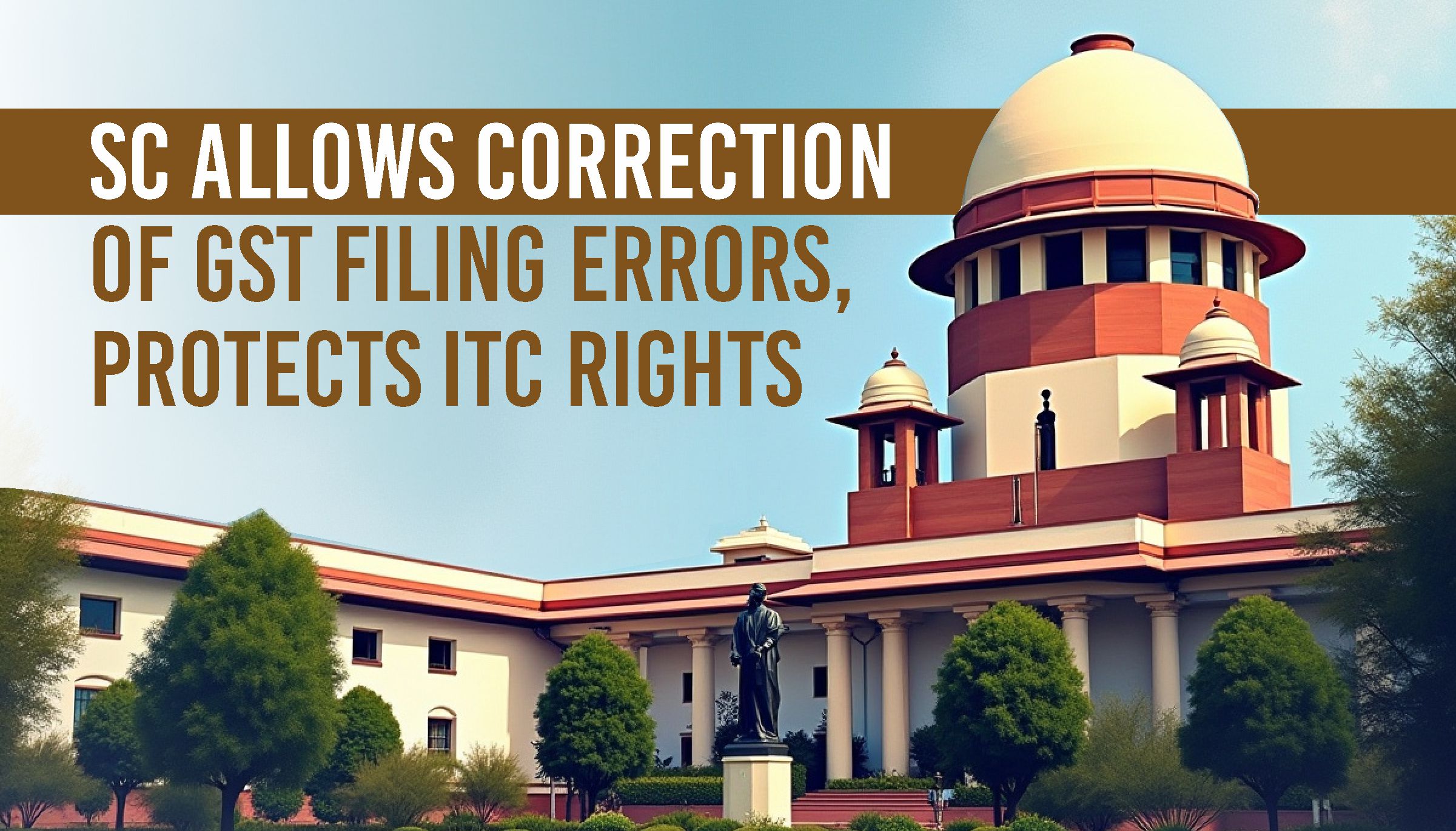SC Allows GST Error Corrections, Protects ITC Claims

In a landmark judgment, the Supreme Court has ruled that businesses should be allowed to rectify clerical or human errors in their Goods and Services Tax (GST) filings without penalties or denial of Input Tax Credit (ITC). The verdict, which stems from an appeal by the Central Board of Indirect Taxes and Customs (CBIC) against a Bombay High Court order in the case of Aberdare Technologies, is expected to bring significant relief to businesses grappling with GST compliance complexities.
The Supreme Court took a firm stance on the strict deadlines imposed by tax authorities for rectifying such errors and has directed CBIC to re-examine the timeline provisions to ensure they are reasonable and practical. The Division Bench, comprising Chief Justice Sanjiv Khanna and Justice Sanjay Kumar, emphasized that mistakes are natural and occur not only on the part of taxpayers but also on the side of revenue authorities.
The Court observed that software limitations cannot justify rigid policies that hinder compliance. Noting that GST software is designed to facilitate ease of filing, it stated that technical constraints should not result in unnecessary hardships for businesses. Consequently, the Court dismissed CBIC’s special leave petition and upheld the High Court’s decision allowing corrections to GST returns, whether electronically or manually.
Technical Background and Case Details
Under the Central GST Act, businesses are eligible to claim ITC based on tax invoices issued by suppliers. However, ITC is only granted if the supplier has accurately filed returns reflecting the corresponding transaction. Errors such as incorrect GSTIN entries, mismatches in invoice details, or unintentional omissions have frequently led to the rejection of ITC claims, even when there was no intention to evade taxes or misrepresent transactions.
The case of Aberdare Technologies involved inadvertent errors in the company’s GST returns, which led to ITC being denied. The Bombay High Court had earlier ruled in favor of Aberdare Technologies, stating that businesses should be allowed to rectify such errors as long as there is no revenue loss to the government. This decision was challenged by CBIC, leading to the Supreme Court ruling.
The Supreme Court has now clarified that genuine errors should not lead to undue financial hardship for businesses. It has also urged tax authorities to adopt a pragmatic approach and focus on facilitating compliance rather than imposing punitive measures for bonafide mistakes.
Implications of the Ruling
The Supreme Court’s judgment carries wide-ranging implications for businesses and tax administration in India:
- Ease of Compliance: Businesses now have greater flexibility to correct filing errors, ensuring ITC claims are not unjustly denied.
- Reduction in Litigation: By allowing rectifications, the ruling may reduce the number of tax disputes arising from clerical mistakes.
- Software Reforms: CBIC may need to revise GST portal functionalities to accommodate error correction more seamlessly.
- Balanced Approach to Taxation: The judgment reinforces a taxpayer-friendly GST regime, preventing rigid technical interpretations from obstructing genuine claims.
As businesses await further clarifications from CBIC, this ruling strengthens taxpayer rights and provides reassurance that compliance processes should be practical, not punitive. Moving forward, CBIC’s response and potential amendments to GST rules will determine how effectively the spirit of this ruling is implemented in practice.
